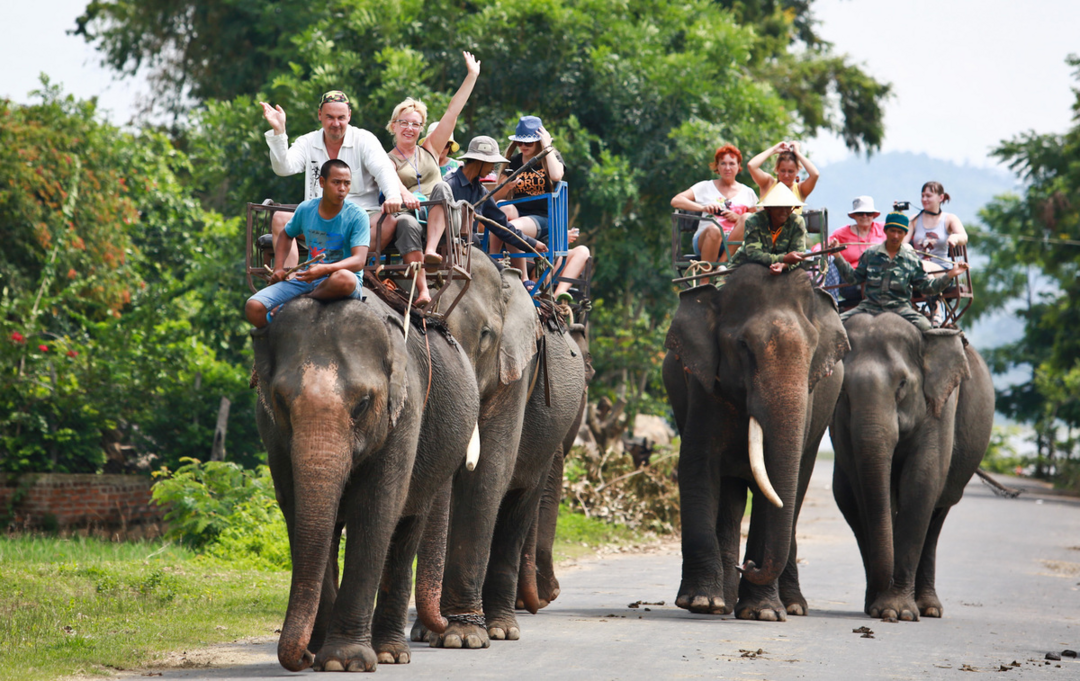
Đắk Lắk Province, Vietnam – In a significant shift towards responsible tourism, several organizations and enterprises in the Central Highlands province of Đắk Lắk are championing an "elephant-friendly tourism" model. This initiative aims to enhance the welfare of domesticated elephants while providing visitors with authentic and meaningful experiences.
The transition marks a departure from traditional elephant riding, which has long been a staple of tourism in the region. Leading the charge is Yok Đôn National Park, in collaboration with Animals Asia, which began offering ethical elephant encounters in July 2018. Visitors now have the opportunity to observe elephants in their natural habitat, witnessing their daily routines, including feeding, bathing, and roaming freely within the forest. Feedback from tourists has been overwhelmingly positive, with many expressing appreciation for the respectful interactions and the chance to learn about the elephants' lives.
Two years ago, the Buon Don Suspension Bridge Tourism Centre also ceased its elephant riding services, opting instead for close, non-invasive interactions. Tourists can now engage in activities such as feeding, photographing, and bathing the elephants, as well as participating in traditional health blessing ceremonies and "elephant buffets." The center has prioritized improving the elephants' living conditions, focusing on proper diet, medical care, and suitable accommodations.
Trần Thị Kim Anh, Director of the Biệt Điện Tourism and Hotel Branch, which manages the Buon Don Suspension Bridge Tourism Centre, reported "encouraging results" from the new model. "It has helped improve the living conditions of both elephants and local communities and has become a highlight of our activities," she said.
Elephant-friendly tourism is viewed as a responsible approach that minimizes the impact of tourism on elephant health, contributing to conservation efforts and sustainable tourism. This initiative aligns with the memorandum of understanding signed between the provincial People’s Committee and Animals Asia in 2021, which aims to phase out elephant riding and other activities that compromise the welfare of domesticated elephants.
Challenges and Future Directions
Despite the positive outcomes, challenges remain. Đắk Lắk is home to 35 domesticated elephants, many of which are aging, and breeding efforts have been largely unsuccessful, placing the herd at risk of extinction. Shrinking grazing areas and food sources also pose significant challenges. Furthermore, the lack of official regulations in Lắk District has led to a surge in elephant riding tourism, placing additional pressure on elephant welfare.
At a recent workshop, "Elephant Stories," stakeholders discussed solutions to protect domesticated elephants and further develop the elephant-friendly tourism model. Y Si That Ksor, Vice Chairman of the People’s Committee of Buôn Đôn District, emphasized the need for alternative livelihoods for elephant owners and handlers, including support in infrastructure, technical materials, and vocational skills.
Ryan Hockley, Animals Asia Elephant Welfare Advisor, highlighted the benefits of the new model, noting that the animals live closer to their natural instincts and enjoy better health and longer lifespans. He suggested that understanding tourist preferences, improving tour quality, identifying target customer groups, and enhancing promotion across multiple platforms are crucial for the model's success.
Nguyễn Thuỳ Phương Hiếu, Director of the Đắk Lắk Department of Culture, Sports and Tourism, affirmed that elephant-friendly tourism aligns with the province’s conservation goals. The province has directed localities and businesses to gradually replace and completely end elephant riding tourism by 2026.
The model is being integrated with various cultural and natural tourism products, including experiencing Lao culture and cuisine, hiking, camping, cycling, exploring the Serepok River, and enjoying gong performances, to create memorable experiences for visitors.
[Copyright (c) Global Economic Times. All Rights Reserved.]




























